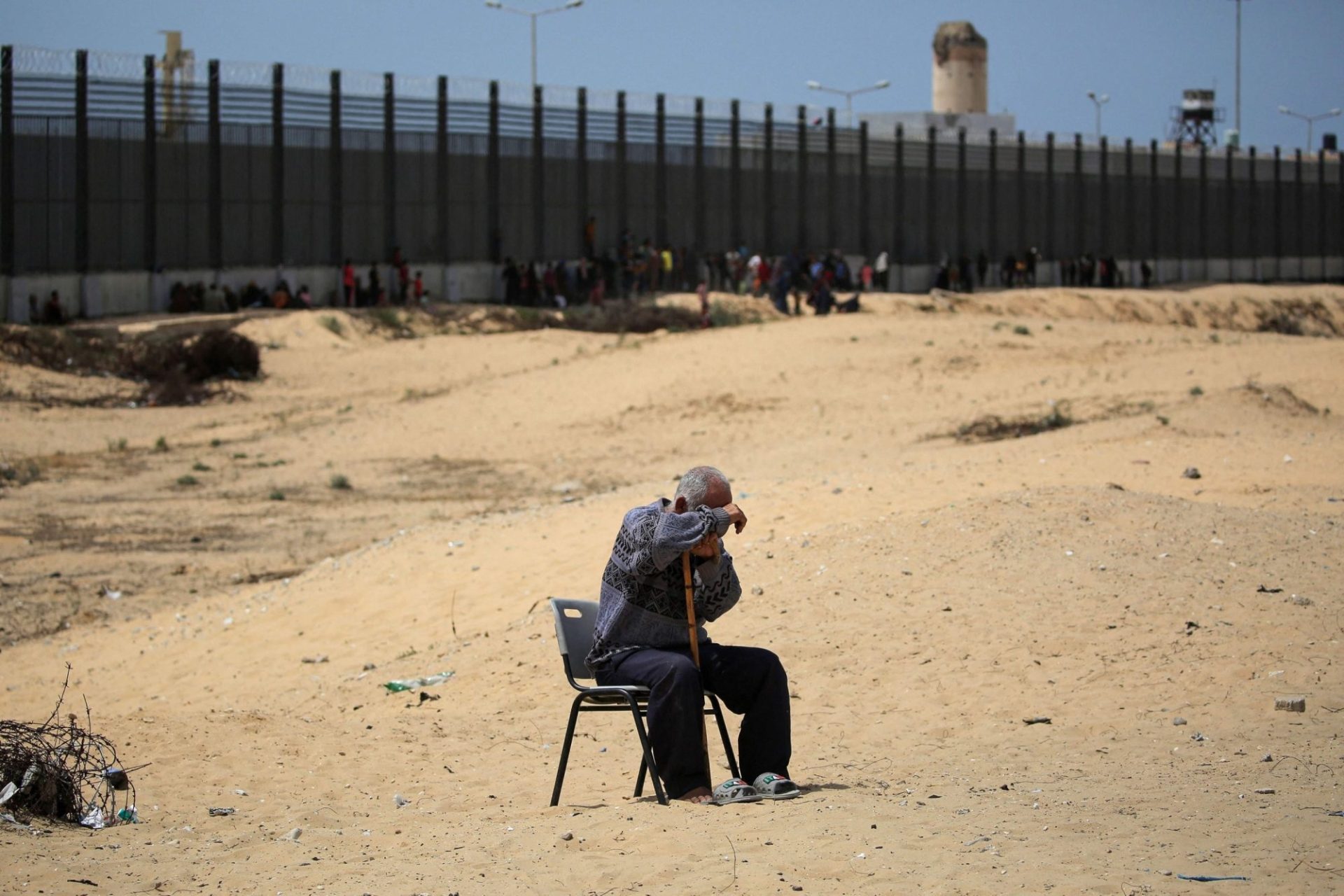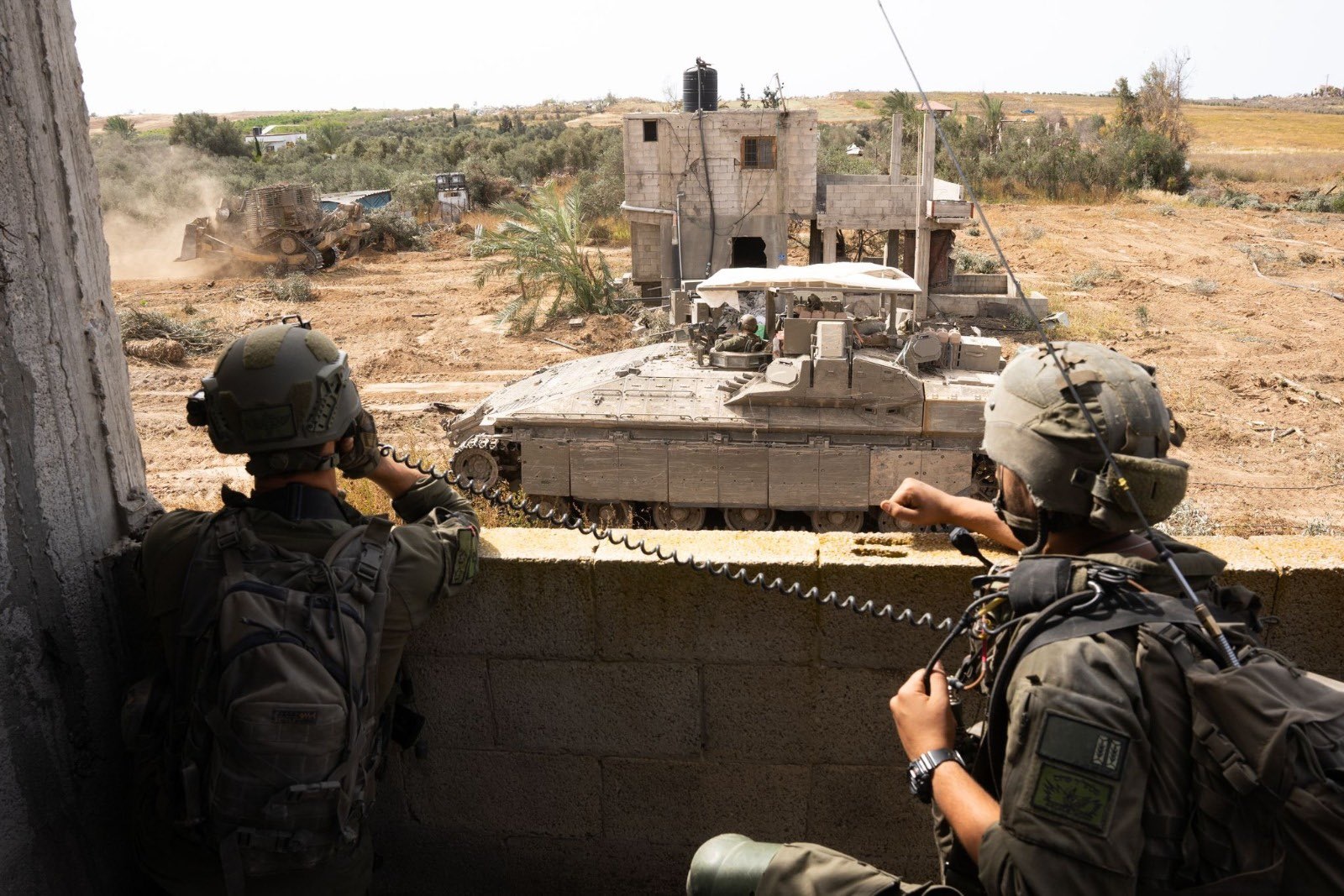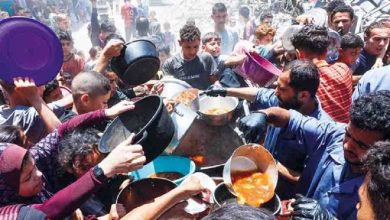Tensions Escalate in Gaza: Hamas Response Awaited Amid Israeli Threats

Watan-It is expected that Hamas will deliver its response to the Egyptian and Qatari mediators within hours regarding the proposed ceasefire in Gaza and the prisoner exchange deal. Meanwhile, Israeli threats to launch an attack on the city of Rafah in the southern Gaza Strip have been renewed, regardless of whether an agreement is reached or not.
Israeli Channel 13 reported statements from an Israeli official claiming that Hamas has hardened its position and returned to demanding a complete cessation of hostilities.
Hamas insists on halting the destructive Israeli war on the Gaza Strip as part of any prisoner exchange agreement, a demand rejected by Israeli ministers in the right-wing-dominated government.
נפגשתי היום עם נציגי משפחות חטופים ומשפחות שכולות מפורום “הגבורה” ופורום “תקווה”.
הבהרתי:
הרעיון שנפסיק את המלחמה לפני השגת כל יעדיה אינו בא בחשבון. ניכנס לרפיח ונחסל את גדודי החמאס שם – עם עסקה או בלי עסקה, כדי להשיג את הניצחון המוחלט. pic.twitter.com/g0r4VAYlNs
— Benjamin Netanyahu – בנימין נתניהו (@netanyahu) April 30, 2024
Crucial hours ahead… “Either a deal or an invasion of Rafah”
Israeli political and security officials agree that the coming hours will be “decisive” for the planned military operation in Rafah and the efforts of the mediators to reach a deal.
Israeli media quoted officials from the Israeli army and political level as saying that Tel Aviv would make its decision within a maximum of 72 hours regarding “commencing the operation in the city of Rafah in the south of the Strip or reaching an agreement with Hamas on the prisoner exchange.”
The officials considered Hamas’s response to the Egyptian proposal regarding the exchange deal as pivotal, which is expected to be delivered to Cairo today or tomorrow.
According to reports, the Israeli army will give the mediation efforts 48 to 72 hours.
The Israeli army radio quoted officials in the security apparatus this morning as saying, “If a hostage deal (prisoner exchange) is reached, it is certain that the operation in Rafah will be postponed, but we will not agree to Hamas’s procrastination.”

The sources added, “If no agreement is reached within the next two or three days, the order to attack Rafah will be issued.”
The sources further stated, “The army has completed its preparations for the Rafah operation, and the tent camps for evacuating people from Rafah are ready.”
The sources said that the Israeli army is awaiting “final approval from the political leadership” to launch the attack on Rafah.
They stressed that “the security apparatus fully supports the deal, even at difficult costs, but not at the expense of ending the war.”
Netanyahu threatens: We will enter Rafah with or without a deal
In the same context, Israeli Prime Minister Benjamin Netanyahu said that there is no change in the objectives of the war on the Gaza Strip, and Israel will not accept a settlement regarding Rafah.
He affirmed that Israeli forces will enter Rafah whether there is a ceasefire and a prisoner exchange deal or not.
Netanyahu, during a meeting with representatives of the families of detainees in Gaza as reported by his office, said, “The idea that we will stop the war before achieving all its objectives is not an option. We will enter Rafah and eliminate Hamas brigades there with or without an agreement, in order to achieve comprehensive victory.”
During his meeting with the families, he explained that the possibility of reaching a prisoner exchange deal is slim because Hamas still adheres to its positions, emphasizing that Israel will not accept an absolute withdrawal from the Gaza Strip.
Netanyahu was also quoted as confirming that the evacuation of Palestinians from the Rafah area in the southern Gaza Strip has actually begun in preparation for an imminent operation there, and that the operation has the approval of the members of the War Council.
In turn, Defense Minister Itamar Ben Gvir said that Netanyahu promised during a meeting between them to enter the army into Rafah and not end the war on Gaza.
Finance Minister Tzachi Hanegbi also called for the complete destruction of Rafah, Deir al-Balah, and Nusseirat, considering it “ridiculous to negotiate with someone who should not have been there in the first place.”






